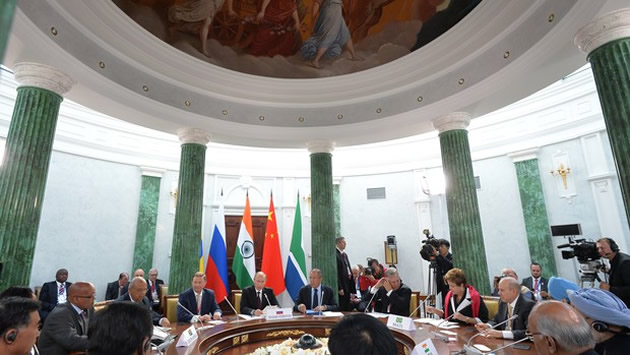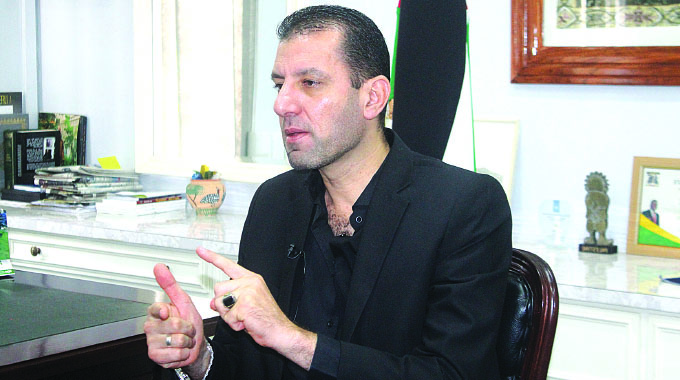Brics forges stronger economic partnership

 FORTALEZA. – The emerging-market bloc of Brics on Tuesday announced plans to establish a development bank and a contingent reserve arrangement (CRA), in a bid to forge a closer and stronger economic partnership.
FORTALEZA. – The emerging-market bloc of Brics on Tuesday announced plans to establish a development bank and a contingent reserve arrangement (CRA), in a bid to forge a closer and stronger economic partnership.
The five members of the group – Brazil, Russia, India, China and South Africa – laid out the designs of the New Development Bank (NDB) and the CRA in a declaration released following their sixth summit in the Brazilian city.
The NDB, to be headquartered in Shanghai, will have an initial authorised capital of US$100 billion, and its initial subscribed capital of US$50 billion will be equally shared among founding members, according to the Fortaleza Declaration. The five countries decided that the first chair of the Board of Governors shall be from Russia, the first chair of the Board of Directors from Brazil, and the first president of the bank from India.
They also agreed to set up an African regional centre of the NDB in South Africa, which will be established concurrently with the headquarters.
The bank, said the declaration, is aimed at “mobilising resources for infrastructure and sustainable development projects in Brics and other emerging and developing economies.”
“Based on sound banking principles, the NDB will strengthen the co-operation among our countries and will supplement the efforts of multilateral and regional financial institutions for global development, thus contributing to our collective commitments for achieving the goal of strong, sustainable and balanced growth,” said the document.
The CRA, with an initial size of US$100 billion, “will have a positive precautionary effect, help countries forestall short-term liquidity pressures, promote further Brics co-operation, strengthen the global financial safety net and complement existing international arrangements,” it added.
In addition, the five countries also voiced their readiness to further facilitate trade, enhance financial ties, tackle tax-related challenges and tap the co-operation potential in insurance and reinsurance markets.
To strive for more comprehensive co-operation, the five economies pledged to “deepen our partnership with a renewed vision, based on openness, inclusiveness and mutually beneficial co-operation” while remaining committed to those objectives.
“In this sense, we are ready to explore new areas towards a comprehensive co-operation and a closer economic partnership to facilitate market inter-linkages, financial integration, infrastructure connectivity as well as people-to-people contacts,” said the declaration.
Highlighting their commitment to raising their economic co-operation to a qualitatively new level, they emphasised the importance of establishing a road map for intra-Brics economic co-operation.
They agreed to advance discussions on the proposals for a Brics economic co-operation strategy and a framework of Brics closer economic partnership with a view to formulating a plan for endorsement by the next summit.
Meanwhile, the world’s leading emerging economies expressed their disappointment with the failure to implement the 2010 International Monetary Fund reforms.
The failure negatively impacts the global lender’s legitimacy, credibility and effectiveness, said the declaration.
In parallel, they urged the IMF to “develop options to move ahead with its reform process, with a view to ensuring increased voice and representation” of developing countries, in case the 2010 reforms are not entered into force by the end of the year.
The five countries called upon the IMF to reach a final agreement on a new quota formula without further jeopardising the postponed deadline of January 2015.
On the role of the World Bank, the bloc welcomed the goals it has set to help countries end extreme poverty and promote shared prosperity.
In order to unleash its potential, the institution needs to move towards more democratic governance structures, strengthen the bank’s capacity and explore innovative ways to enhance development financing and knowledge sharing while pursuing a strong client orientation that recognises each country’s development needs, they proposed.
Meanwhile, the declaration also conveyed the stance of the Brics members on a host of hot issues, such as global climate change, cyber-crimes as well as the situation in Syria, Ukraine, Iraq and Somali.
Noting that the world is confronted with persistent political instability and conflict in various global hot-spots and non-conventional emerging threats, the five countries advocated co-operative approach and peaceful solution to those issues. – Xinhua.





Comments